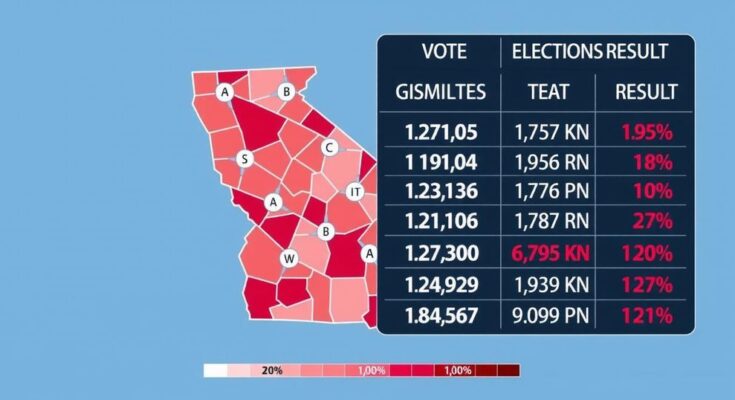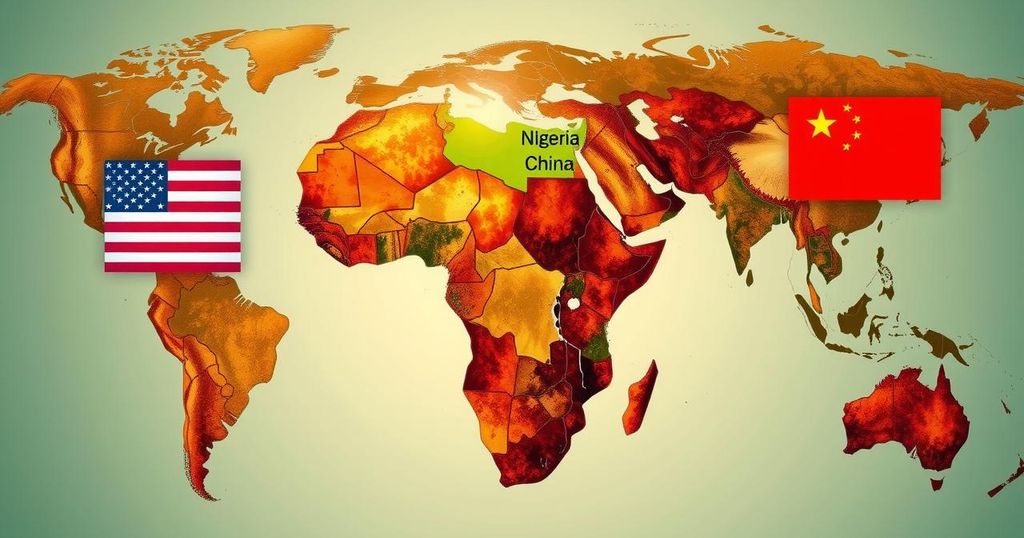On October 26, 2024, Georgia held essential elections that resulted in contested claims of victory by the ruling Georgian Dream party amid allegations of voter fraud. The party’s Prime Minister insisted on a significant win, while exit polls suggested otherwise. Concerns about election violence and irregularities cast doubt on the election’s legitimacy, leading to calls for independent investigations.
On October 26, 2024, Georgians participated in critical elections, marking the most pivotal electoral event since 2003. The ruling party, Georgian Dream (GD), proclaimed a substantial victory amidst allegations of voter fraud from both opposition factions and observers. Prime Minister Iralki Kobakhidze claimed a “landslide” win, although exit polls indicated a different outcome, suggesting a combined 51.9% support for opposition groups compared to GD’s 40.9% to 42%. The initial results from Georgia’s Central Election Commission (CEC) reported GD winning 56% of the vote, countered by concerns from the BBC regarding the CEC’s closeness to the ruling party and the credibility of the declared results. Reports of election-related violence further complicated the situation, with observers from My Vote asserting significant discrepancies in the data collected.
While the Prime Minister acknowledged irregularities, he deemed the overall election consistent with democratic principles. Contrarily, Eklund, a former EU ambassador, criticized the electoral process by stating, “Voter intimidation…up to and on election day severely undermined the process.” The prevalence of election violence has been a disturbing trend not only in Georgia, but also globally, with numerous countries experiencing similar unrest during their electoral processes this year. Reports indicate that at least 70 nations have conducted or are poised to conduct elections in 2024, emphasizing elections as a cornerstone of democratic governance. However, they have also frequently been marred by violence and democratic regression.
The current political landscape in Georgia has been influenced by GD’s 12-year rule, which recently leveraged the ongoing conflict in Ukraine to campaign aggressively against opposition parties, suggesting their potential to plunge the nation into further turmoil. After the opportunity to join the European Union faltered due to GD’s anti-Western rhetoric and the controversial passing of a “foreign influence” law, protests erupted across the nation. Bidzina Ivanishvili, GD’s founder, has expressed intentions to suppress opposition parties, framing civil society and the press as foreign agents. In the aftermath of the elections, Georgia is anticipated to strengthen its connections with Russia, thereby expanding Moscow’s influence in the region.
The elections in Georgia are set against a backdrop of intense political dynamics, characterized by the Georgian Dream party’s long-standing rule and controversial governance. The party’s examination of security concerns, particularly pertaining to conflicts involving Russia and Ukraine, shapes public perception and voting behavior. Concurrently, international observers have emphasized the necessity of safeguarding electoral integrity amid growing concerns regarding alleged voting malpractice and the suppression of opposition voices. This electoral climate reflects broader trends in democratic processes worldwide, where violence and obstruction often undermine the electoral system, calling for urgent international scrutiny.
The recent elections in Georgia illustrate a significant tension between the ruling party and opposition factions, raising critical questions about the electoral integrity and broader implications for democracy within the nation. Allegations of voter fraud, significant discrepancies in reported results, and documented instances of violence necessitate thorough examination by independent authorities to uphold the will of the Georgian populace. Moving forward, the international community’s vigilance will be paramount in ensuring accountability and promoting genuine democratic processes.
Original Source: theowp.org




